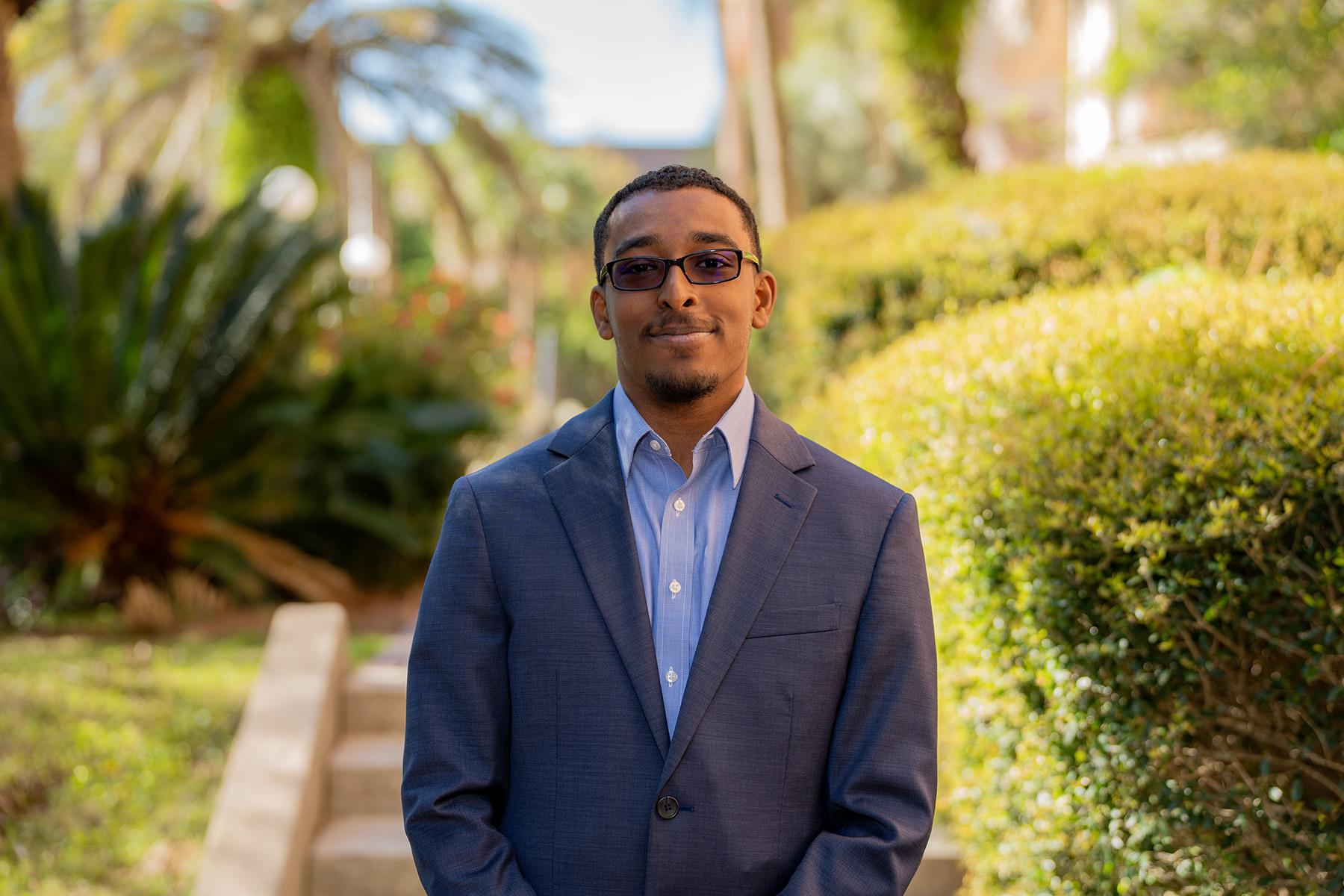
A Florida State University student has been awarded the Barry Goldwater Scholarship, a national award that recognizes outstanding college students who intend to pursue research careers in the natural sciences, mathematics and engineering.
Shaheed Perez, a junior double majoring in physics and mathematics, will receive up to $7,500 for his final semester in the fall from the Barry Goldwater Scholarship and Excellence in Education Foundation to be used toward tuition, fees, books and room and board. Perez was one of 438 students nationally to be awarded the scholarship for the 2024-2025 academic year.
“When you work extremely hard toward a goal and end up achieving it, it really confirms the fact that the work you put in is meaningful and will eventually pay off,” he said. “That’s what the Goldwater Scholarship means to me.”
Perez began his research in cosmology, a subfield of astrophysics.
Under FSU Department of Physics Professor Kevin Huffenberger, Perez was introduced to the first successful prediction made by the Standard Cosmological Model, which states that on large scales, the universe is spatially flat. The cosmic microwave background (CMB), a light source originating from the time of the Big Bang, offered experimental evidence of temperature variations across space.
“Scientists believe that the universe rapidly expanded from a very small point, like a balloon inflating quickly — this theory is known as the Big Bang Model,” he said. “The evidence for this theory can be found in the cosmic microwave background, which dates to the time of the Big Bang.”
But there’s a challenge, he said.
“Our galaxy emits a similar type of light that outshines the CMB light,” Perez said. “So, my job was to analyze the light from our galaxy, which is included in the data I received, to better understand how we can separate it from the CMB light.”
The Planck Telescope Team, the ones who collected the data, were the first to complete this type of analysis; however, they did not complete the analysis for the new data released in 2020. Perez replicated this analysis on the new data to see if it was consistent with the old analysis and if there were any new findings.
“Shaheed is one of the most humble, hard-working students that I have had the pleasure to work with during my time at Florida State,” said Jesse Wieland, associate director of the Office of National Fellowships. “It is so gratifying to see his research and fervor for academic excellence recognized in such a notable way through the Goldwater Scholarship.”
The Barry Goldwater Scholarship and Excellence in Education Program was established by Congress in 1986 to honor Senator Barry Goldwater, who served his country for 56 years as a soldier and statesman, including 30 years of service in the U.S. Senate.
Students interested in applying to the Goldwater Scholarship should contact the Office of National Fellowships at onf@fsu.edu.
For more information on national awards and fellowships, visit the Office of National Fellowships website at onf.fsu.edu. For more information about the Goldwater Scholarship, visit goldwater.scholarsapply.org.




